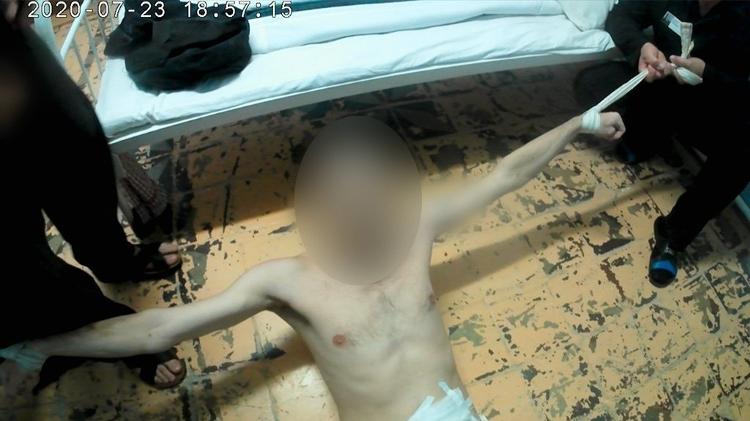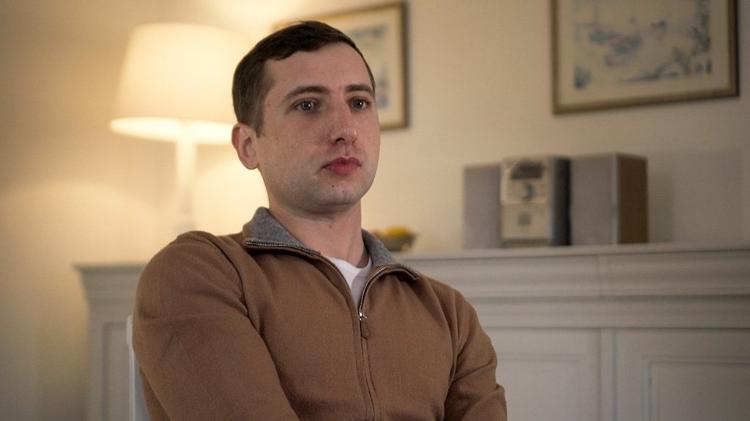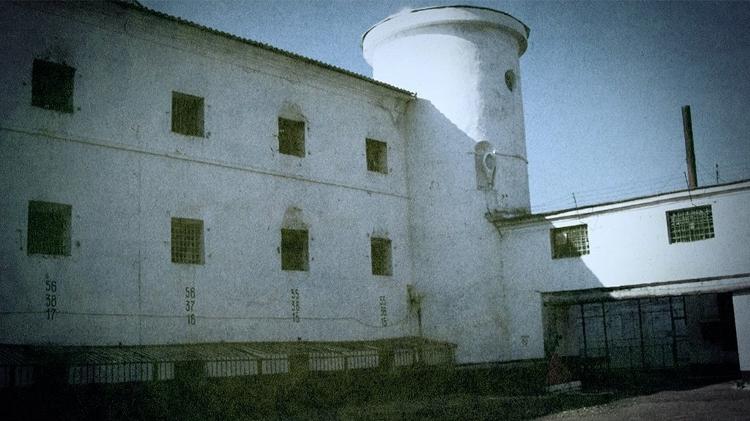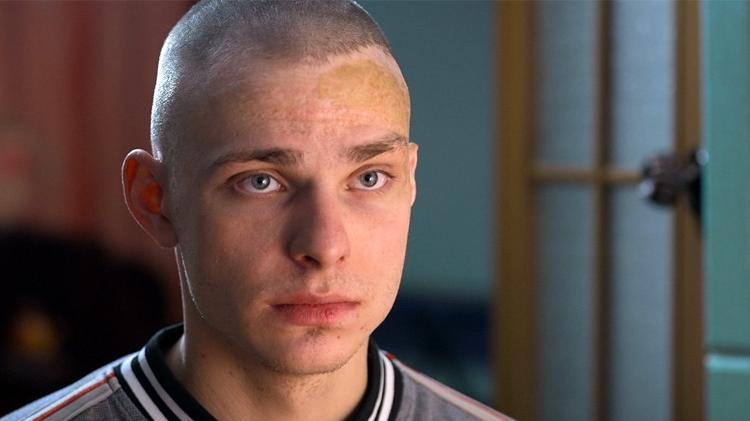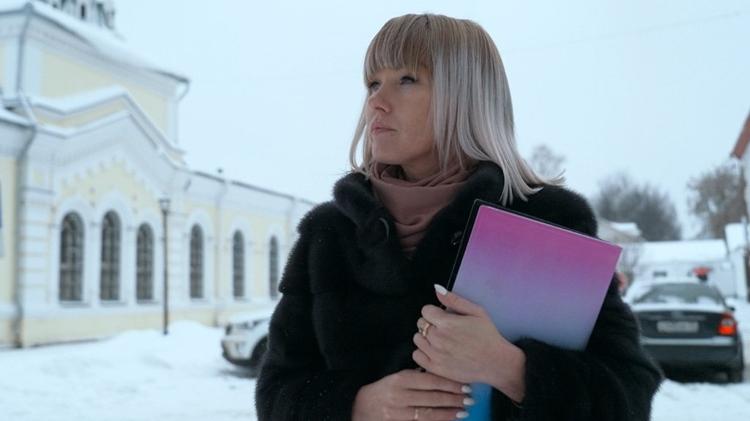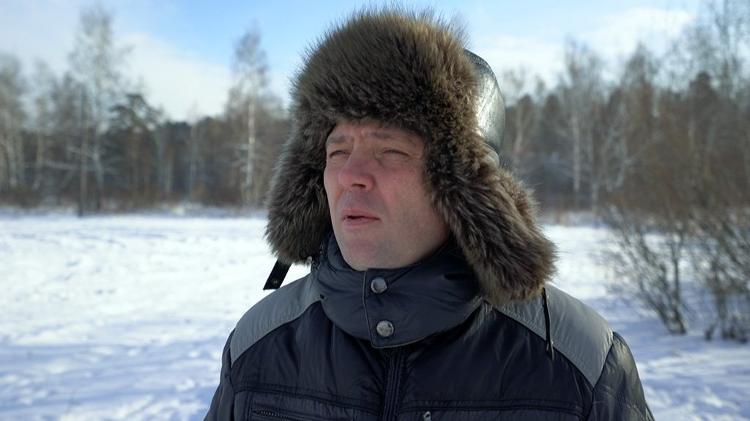Former inmates described to BBC News the violent abuse they were subjected to in prison.
Warning: This article contains images and graphic descriptions of sexual abuse and violence.
Former Russian prisoners spoke to the BBC about the systematic torture and rape they were subjected to in prisons across the country, after footage of abuse was leaked by a source last year.
Saratov prison hospital in southwestern Russia gained notoriety last year when videos of horrific abuse of prisoners were leaked to a human rights organization and circulated in the international press.
Alexei Makarov knew about the prison’s reputation before he was transferred there in 2018 to serve a six-year sentence for assault. Inmates sent to Saratov from other prisons say a hospital has been set up there so that inmates can be tortured behind closed doors.
There are almost no independent inspections in Russian prisons, and prison hospitals – with sanitary quarantine rules – even less.
Makarov was really sick. He had been diagnosed with tuberculosis and hoped to escape the torture. But she says she was raped twice while she was there.
Victims and experts say that abuse always takes place with the consent of prison authorities and is used to blackmail prisoners, intimidate them or make a forced confession.
High-profile leaks forced the Russian government to respond to the scandal in the country. According to the independent project Proekt, torture was reported in 90% of Russia’s regions between 2015 and 2019. But the action slowed down.
The BBC reviewed thousands of court documents from this period and found that 41 members of the prison service had been convicted. But nearly half of them received only suspended sentences that did not require jail time.
The BBC spoke to prisoners, including Makarov, about their suffering in the Russian prison system.
Makarov said he was tortured for the first time in February 2020. He refused to admit that he was part of a conspiracy against the prison administration. She says she eventually suffered repeated severe sexual abuse by three men.
“They beat me for 10 minutes, they ripped my clothes. They raped me with brooms every two minutes for like two hours. When I fainted, they poured cold water and put it back on the table.”
It happened again two months later. She was forced to pay 50,000 rubles to her attackers and said she was raped to silence her.
Makarov told the BBC that his torture in prison was filmed. Prisoners know that degrading images can be shared with the entire prison if they do not comply.
The rapists – Makarov and others sure – were other prisoners who acted on the instructions of the prison bosses.
Makarov says the music was played loudly during the torture episodes to hide the screams.
secret records
The leak of Saratov’s footage last year was published with the help of another ex-con. Sergey Savelyev managed to miss footage showing humiliation and violence against dozens of prisoners.
He also believes that torture is sanctioned at the highest levels of prison as part of an organized system.
Savelyev was granted access to the footage as he was called to work in the prison security department, which was understaffed to meet the demand. He was commissioned to monitor and catalog images taken from body cameras used by prison guards.
But he told the BBC that when it came to torturing a prisoner in Saratov, the police forced other inmates to do their dirty work and asked them to use body cameras to film the abuse.
“I got orders [para dar câmeras corporais aos presos] says chief of security.
He was instructed to record recorded footage of some of these attacks for display to the security department, and sometimes to transfer it to a unit so that it could be shown to higher-level officials.
After discovering the horror behind closed doors, he began to copy and hide the files.
“Seeing all this and doing nothing, acting like everything is normal,” she says.
In some of the clips, the men performing the torture are seen wearing handcuffed equipment, such as body cameras, that is given only to the guards.
Savelyev says that the perpetrators of the abuse, as a rule, are prisoners convicted of violent crimes and therefore sentenced to long prison terms. That’s why he says they’re interested in pleasing the authorities to get better treatment. These prisoners are sometimes nicknamed “pressovskiki”.
“They should want to do good in this period, they want the prison administration to keep their promises so that they can eat well, sleep well and have some privileges,” explains Savelyev.
Protocol and method
Activist Vladimir Osechkin, with whom Gulagu.net posted the leaked videos, points to a kind of frightening protocol followed by torturers – suggesting that these procedures are widely practiced.
“They signal each other, they act in a quiet order, they understand each other without words because they follow a well-established system. [O homem na imagem] It shows how to open another man’s legs so that he can be raped.”
After Savelyev leaked evidence, six “pressovschiki” were identified but denied any involvement. Two months later, the director of the Saratov prison hospital and his deputy were also arrested – both denying any connection to the abuse shown in the videos.
Russian President Vladimir Putin replaced the head of the national prison service and declared that “systematic measures” were needed to bring about change. The country’s law was changed last month to impose harsh penalties for use of torture as an abuse of power or to obtain evidence.
However, human rights activists emphasize that torture has not yet been made a crime.
This is not the first time President Putin has promised change. He made a similar promise after the first footage leaked in 2018 of guards performing mass beatings at a prison in Yaroslavl, north of Moscow.
Eleven Yaroslavl prison staff received the minimum sentence in 2020 and their two bosses were acquitted.
Yulia Chvanova, a lawyer specializing in representing torture victims, says the main motivation for organized prisoner abuse is that authorities focus on confessions, regardless of guilt.
For this reason, he says, the authorities responsible for investigating the crime are the main instigators of torture in Russian prisons.
“Confessions [são colocadas] as a priority.”
She seeks compensation for Anton Romashov, 22, who was tortured in 2017 after refusing to admit crimes he didn’t commit.
Romashov was arrested for possession of marijuana, but the police pressured him to confess to drug trafficking – a much more serious crime. When she refused to confess, she was taken to a Vladimir pre-trial detention center in western Russia in late 2016.
“I was taken [cela] number 26. I knew exactly what kind of cell it was… because I heard screams coming from there, screaming for days.”
Two men were waiting for him there. She says she was thrown to the ground for a day before being beaten, with her hands and feet tied behind her body.
When they pulled his pants down, he said he’d sign whatever they wanted. He was sentenced to five years in prison, despite saying he was tortured to confess to the court.
The investigation into the practices in the Vladimir detention center began after another prisoner killed one of the “pressovschiki” who threatened him with torture.
Prison officials questioned revealed that most of them knew what was going on in the infamous cell 26. The prison official who ran the torture cell was convicted in a trial in which Anton and two other inmates testified.
However, the biggest torture scandal in Russia to date took place in the Siberian region of Irkutsk. In the spring of 2020, after a protest at the 15th Prison in Angarsk, near the city of Irkutsk, the authorities sent a riot squad.
Hundreds of prisoners were taken to two detention centers, where executioners were waiting with “pressovschiki”.
One of those who said they were tortured at the center, Denis Pokusaev, who was sentenced to three years in prison for fraud, says prison officials did not hide why they were being punished.
“[Eles] He said to me, ‘Do you think we care if you’re guilty or not? You came from a rebellion – so you will be held responsible’.”
‘They’re just laughing’
Lawyer Yulia Chvanova explains how it all happened.
“[Os investigadores] they decide who will be questioned, which witnesses and what investigations will be conducted… Then they contact the prison staff and instruct them: ‘I need the confession of a particular person’.”
Pokusaev says the pursuit is relentless.
“The abuse lasted for almost three months, every day except weekends.”
He said authorities were involved in torture sessions.
“They laughed, they ate fruit… One gets raped with all kinds of objects… And they just laugh, they enjoy it.”
The BBC asked the Russian prison service to comment on allegations of torture and rape in prisons and detention centers in the country, but received no response.
Human rights activists estimate that at least 350 prisoners were tortured after the riots.
Pokusaev is one of about 30 people who have earned legal recognition as victims of the incident and is one of the few who are willing to testify in court.
The investigation is expected to lead to several lawsuits. In Denis’ case, he and the other inmates are willing to testify against two prison officials, who both deny the charges against them.
Yulia and everyone who testified in the case were required to sign a confidentiality agreement. It’s unclear whether any of the findings will lead to any significant reform.
Pokusaev says he is still shaken by what happened to him.
“I come to a forest near our house almost every day. I scream obscenity, I scream all this so that I don’t get carried away.”
But he is determined to deliver justice. He believes it’s possible if people talk about what happened.
“Right now people [na Rússia] they’re afraid to say anything… that’s why people don’t buy anything.”
– This text was published at https://www.bbc.com/portuguese/internacional-62492834.
Did you know that the BBC is also on Telegram? subscribe to the channel
Have you watched our new videos on YouTube?? Subscribe to our channel!
source: Noticias
[author_name]
